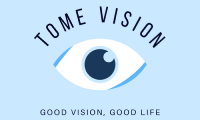The Relationship Between Sleep and Eye Health
Sleep is undeniably crucial for overall health and well-being. It not only restores our energy levels but also plays a vital role in maintaining our brain function, metabolism, and immune system. What many people may not realize is that sleep also has a profound impact on the health and well-being of our eyes. In this article, we will explore the relationship between sleep and eye health and provide some tips on how to ensure optimal eye health through a good night’s rest.
Subheading 1: The Importance of Sleep for Eye Health
Our eyes, like the rest of our body, require adequate rest to function properly. During sleep, our eyes receive much-needed relief from the strain of daily activities such as exposure to screens, driving, and environmental factors like dust and allergens. This downtime allows our eyes to repair and regenerate cells, keeping them healthy and functioning optimally.
Research has shown that a lack of quality sleep can lead to various eye health issues. Chronic sleep deprivation can result in dry eyes, which can cause discomfort, blurry vision, and even damage to the cornea. Additionally, sleep disorders such as sleep apnea have been linked to a higher risk of glaucoma, a condition that damages the optic nerve and can lead to vision loss.
Subheading 2: How Sleep Quality Affects Eye Health
Not only is the duration of sleep important for eye health, but the quality of sleep also has an impact. Rapid Eye Movement (REM) sleep, the stage in which we have vivid dreams, is especially crucial for the health of our eyes. During REM sleep, our eyes are constantly moving beneath our eyelids, which helps nourish the cornea and maintain its integrity.
Bullet list:
– Adequate and quality sleep contributes to the overall health of our eyes
– Lack of sleep can lead to dry eyes and an increased risk of glaucoma
– REM sleep is essential for keeping the cornea healthy
– Tips for promoting good sleep and eye health:
1. Establish a regular sleep schedule: Going to bed and waking up at the same time every day helps regulate your body’s internal clock, promoting better quality sleep.
2. Create a sleep-friendly environment: Ensure your bedroom is cool, dark, and quiet. Consider using blackout curtains, white noise machines, or earplugs to block out any disturbances that may disrupt your sleep.
3. Limit screen time before bed: The blue light emitted by electronic devices can interfere with the production of melatonin, a hormone that regulates sleep. Avoid screens at least one hour before bedtime to promote better sleep quality.
4. Practice good sleep hygiene: Engage in relaxing activities before bed, such as reading a book or taking a warm bath. Avoid stimulants like caffeine and heavy meals close to bedtime. Establish a calming routine that signals to your body that it’s time to wind down.
5. Use lubricating eye drops: If you suffer from dry eyes, applying lubricating eye drops before bed can provide relief and prevent discomfort during the night.
In conclusion, sleep plays a crucial role in maintaining the health and well-being of our eyes. Not only does it provide the necessary downtime for the eyes to repair and regenerate, but it also helps prevent common eye conditions such as dry eyes. By establishing good sleep habits and prioritizing sleep quality, we can ensure optimal eye health and overall well-being.
